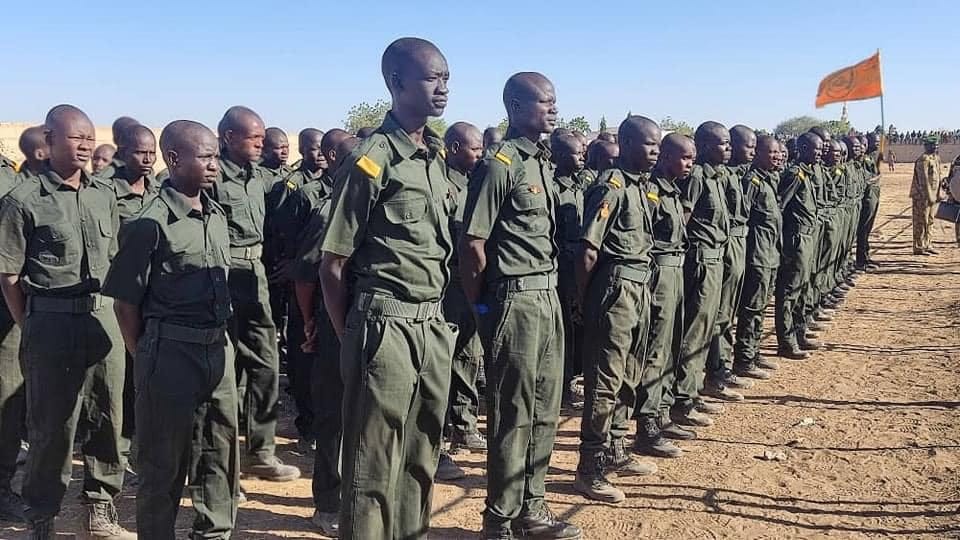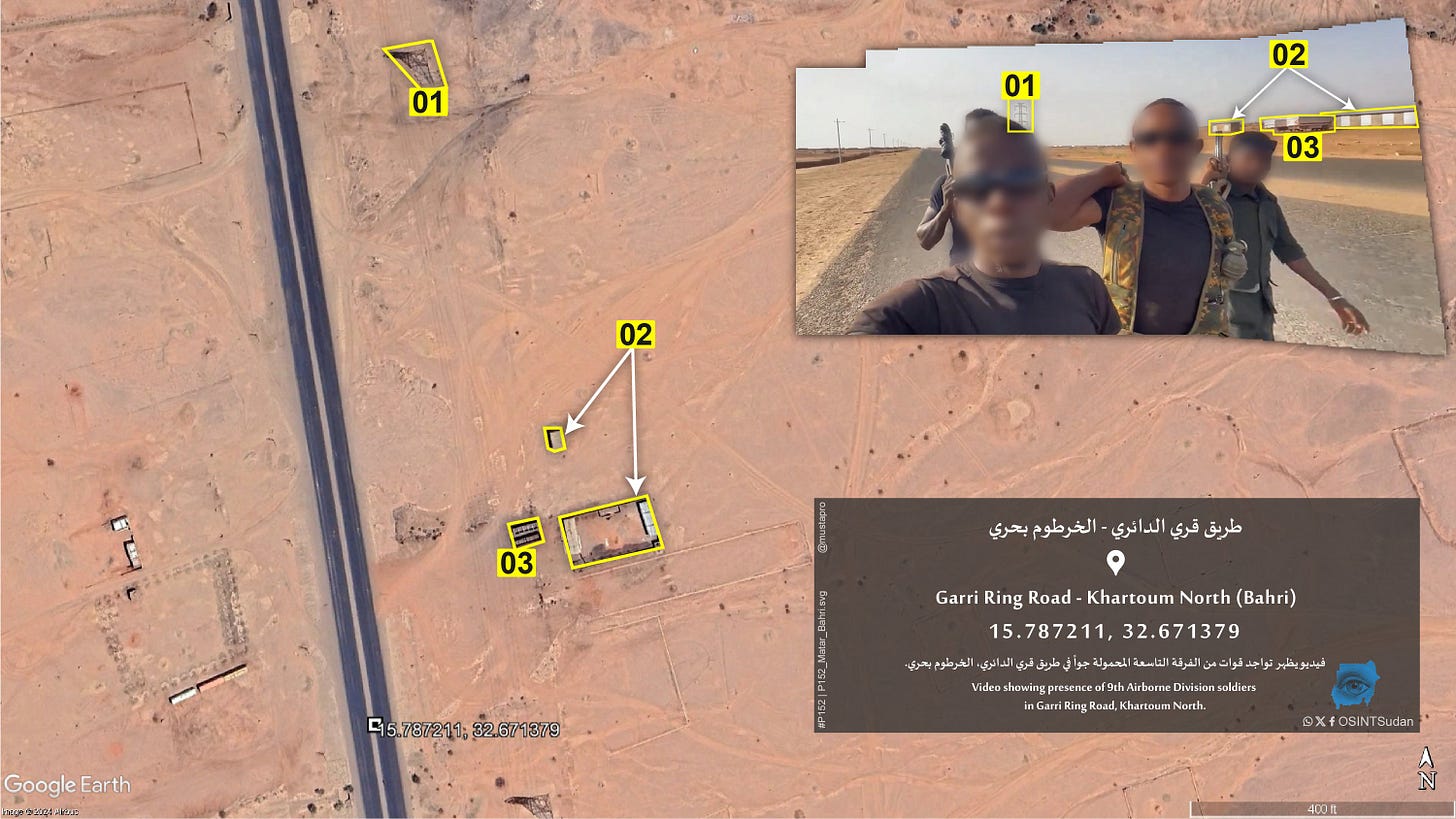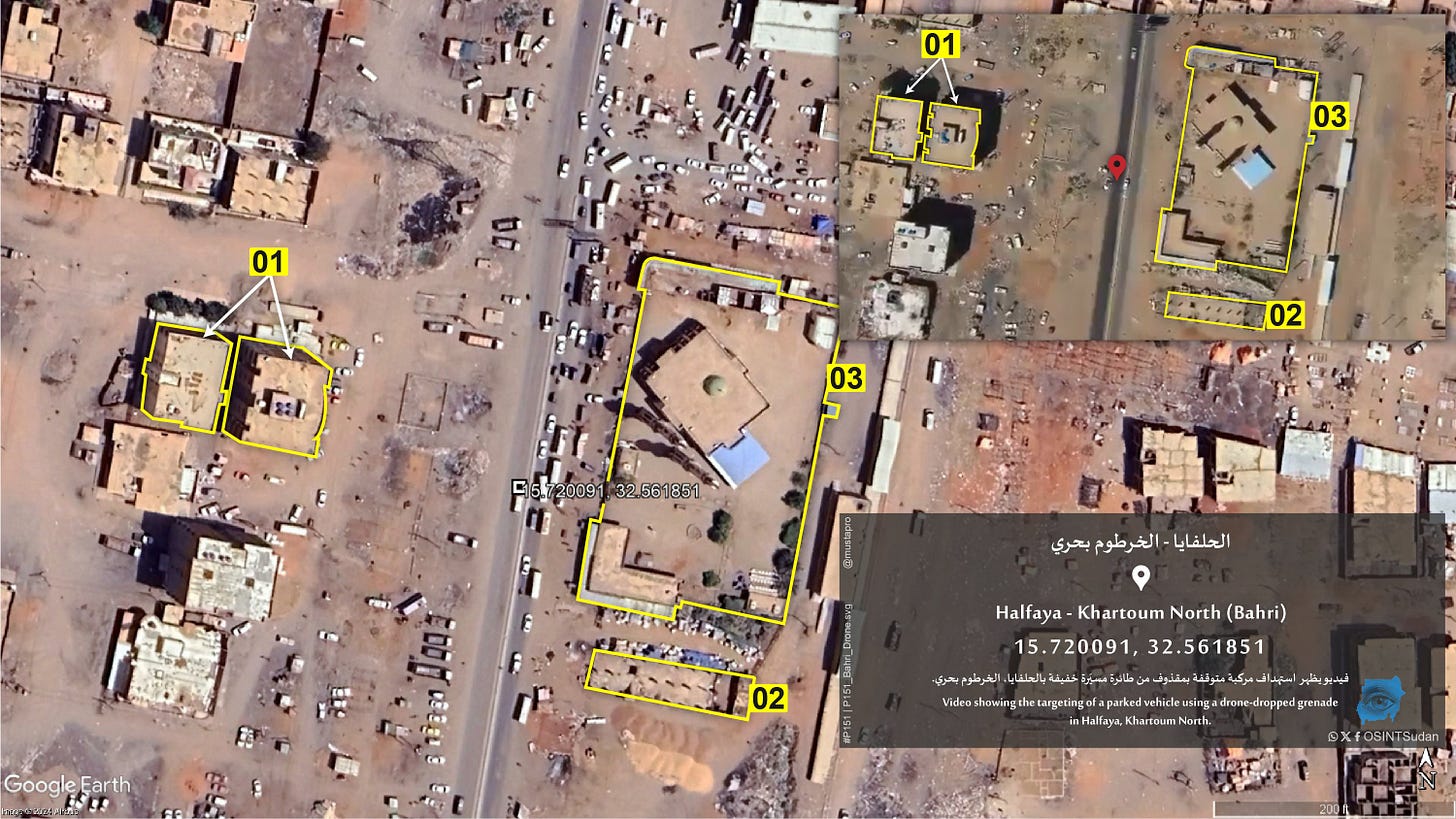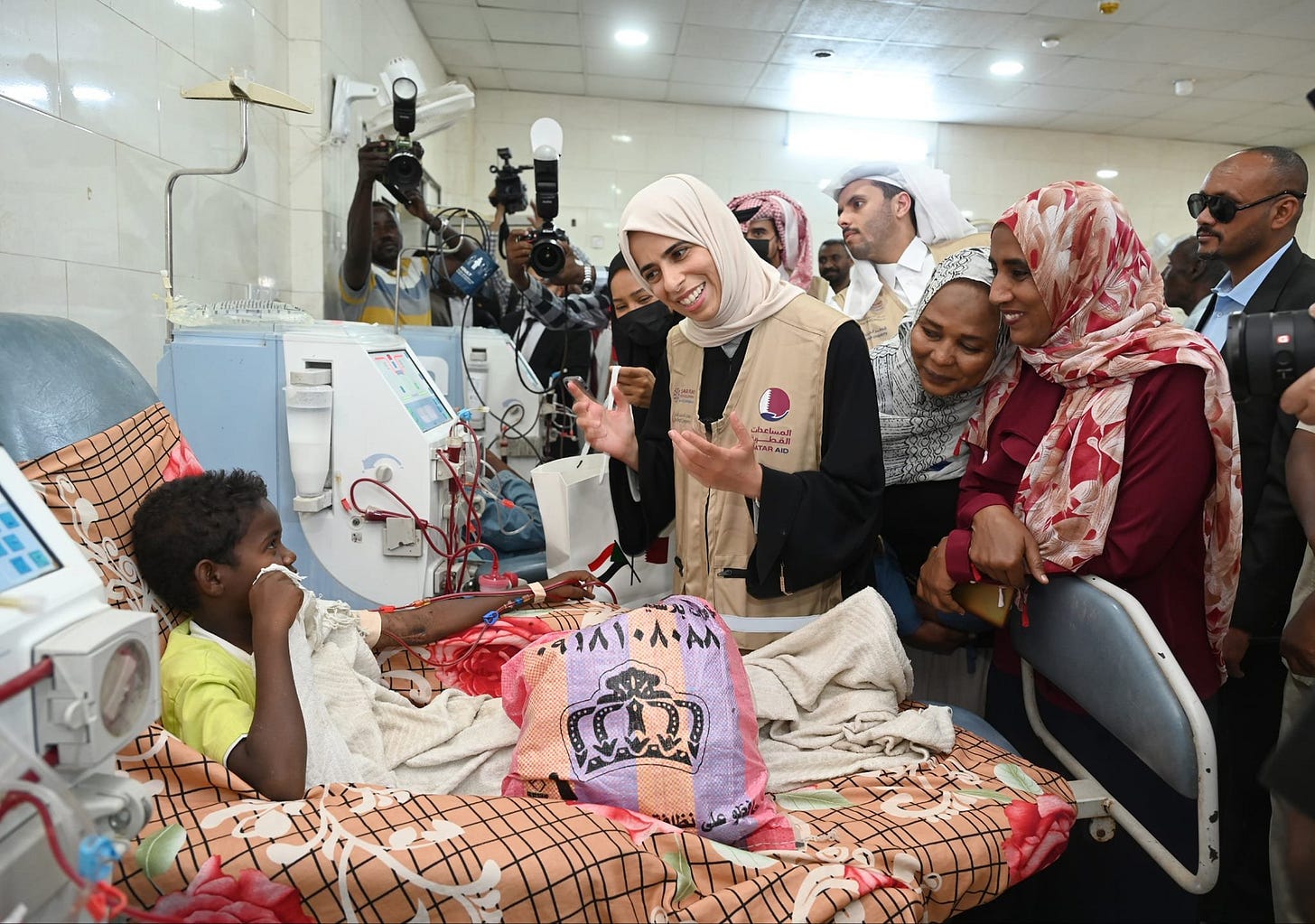Sudan army noncommittal about Ramadan ceasefire
Plus: Fighting in South and West Kordofan
The United Nations Secretary-General and the Security Council have called for a ceasefire during the Muslim fasting month of Ramadan, which begins tonight.
Secretary-General António Guterres said, “I call on all parties in Sudan to honour the values of Ramadan by honouring a Ramadan cessation of hostilities. This cessation of hostilities must lead to a definitive silencing of the guns across the country and set out a firm path towards lasting peace for the Sudanese people.”
Arab foreign ministries across the Middle East echoed this appeal.
Sudan’s Ministry of Foreign Affairs, affiliated with the military junta, responded in part,
“We are certain that the terrorist militia [the Rapid Support Forces], which launched its war on the state and the citizens during the holy month of Ramadan last year, is devoid of any religious, moral or national scruples and cannot therefore respect the sanctity of the holy month.”
The statement named four conditions for a ceasefire, which are sweeping demands that the Rapid Support Forces (RSF) will not meet, such as “the militia’s withdrawal from the states of Jazira and Sennar” and “returning looted public and private property and holding accountable the perpetrators.”
Abdel Fattah al-Burhan, head of the junta and commander-in-chief of the Sudan Armed Forces (SAF), has not publicly committed to a Ramadan ceasefire. According to Sudan’s UN representative Al-Harith Idriss, Al-Burhan commended Guterres' appeal, but "he's wondering about how to do this."
"All those who would like to see that appeal transformed into action are welcome ... to present a mechanism for implementation of it," the ambassador said, as quoted by Reuters.
On the other hand, the RSF welcomed the proposed ceasefire, saying in a statement,
“We are hopeful that this initiative will significantly lessen the suffering of the Sudanese people by ensuring the smooth delivery of humanitarian aid and enhancing the mobility of civilians. Furthermore, we view this as a crucial opportunity to initiate earnest discussions that could catalyze a political pathway.”
However, the statement also said the Sudan Armed Forces had a “long record of… breaking agreements, notably by breaching all humanitarian ceasefires agreed upon during the ongoing conflict.” Both sides blame each other for the failure of humanitarian truces last year, including during Ramadan in April, during the first weeks of the war.
Militarily, Sudan’s army has gained the upper hand in fighting in Omdurman, Sudan’s largest city, and is winning territory. The army is unlikely to benefit from a ceasefire on this key front. It is also in the early stage of a counter-offensive toward Wad Madani.
For their part, the RSF are looking for a fresh victory to restore morale and regain the initiative after setbacks in Omdurman. They may be planning another surprise offensive, akin to the surprise attack on Wad Madani in December.
RSF renew attack on Babanusa garrison
RSF attacked army positions in the small city of Babanusa, West Kordofan, on March 7-8. Anecdotal reports and videos on social media give some glimpses of the fighting, confirmed by a source in the immediate area, but the overall picture remains cloudy.
Pro-army sources reported that the army repelled the attack, causing heavy losses in lives and equipment. This is a widely circulating video of SAF troops cheering from trenches in Babanusa.
From the RSF side, this is a video filmed by a combatant during fighting north of the army base, inside the Babanusa dairy factory
Babanusa had seen a lull in fighting since January, when the RSF gained control of much of the city and attacked the 22nd Infantry Division headquarters, succeeding in breaching part of the perimeter, before withdrawing.
The army’s succesful defense of the base has helped to check the RSF’s relentless advance through west and central Sudan, representing a rare success after a series of military disasters at the hands of the renegade paramilitary.
The base, located on Babanusa’s western outskirts, is defended by several brigades withdrawn from outlying areas of West Kordofan, as well as surviving elements of the 20th Division of Ed Daien, which withdrew to Babanusa in November.
However, the RSF may sense that the isolated garrison is still vulnerable.
Fighting in Babanusa has caused thousands of residents to flee to outlying villages and neighboring cities in West Kordofan.
Related coverage:
Fighting in South Kordofan
Fighting erupted last week between the RSF and the Sudan People’s Liberation Army-North (Al-Hilu) in South Kordofan State, in spite of the two sides being neutral toward each other at the political level.
Sources from South Kordofan told Sudan War Monitor that fighting broke out Tuesday morning in Um Safifa area when the SPLM-N attacked a gathering place of the RSF. The sources indicated that the RSF were able to repel the attack and seize several combat vehicles from the SPLM-N, who retreated to the mountains and resumed the attack Wednesday on the Karkaraya area.
SPLM-N managed to expel the RSF from the Karkaraya region and seize large quantities of supplies. There was a large loss of life as well as some wounded who were taken to the state capital Kadugli.
SAF reinforcements in northern Bahri
New geolocated video confirms the presence of members of the 9th Airborne Division on the Garri Ring Road, on the eastern side of a SAF-controlled pocked in northern Bahri (Khartoum North), referred to in this publication as the Kadroo Enclave.
These SAF members were previously based in Omdurman. Their presence on the opposite bank of the river confirms our previous assessment, January 24, that the army’s Kadroo Camp was reinforced, despite being surrounded. The video, which shows the troops conducting a foot patrol, also suggests that SAF’s patrol range from the Kadroo Camp now extends as far as 7 km east, reaching the Ring Road.
It’s unclear how these men entered the besieged Kadroo area. One possibility is by paradrop or helicopter, but a simpler approach would have been to cross the Nile by boat at night, and sneak through RSF-controlled territory—a journey of about 4 km—aided by drone surveillance to avoid RSF patrols.
The SAF’s Kadroo Enclave, though surrounded, is supported by drone and artillery strikes from Omdurman on the opposite bank of the Nile. Here’s a video of a drone strike using a dropped grenade on a parked vehicle in Halfaya, Khartoum North.
Qatar official visits Ports Sudan
Qatar’s Minister of State for International Cooperation Lolwah Alkhater visited Port Sudan yesterday to highlight the nation’s humanitarian efforts in Sudan and call for “sincere concerted efforts to find an urgent, peaceful solution to this ongoing fighting.”
She arrived on a military aircraft carrying humanitarian supplies and announced a “humanitarian air bridge” throughout the coming month of Ramadan. Qatari charities aim to distribute 50,000 food baskets, of which 20,000 have already been distributed.
Last year, the State of Qatar pledged $50 million to support the UN humanitarian response plan in Sudan.
Alkhater’s visit coincides with an escalation in Qatari diplomatic involvement in Sudan’s conflict, coordinated with Cairo and Riyadh. During her visit, Alkhater met with Sovereignty Council Member General Ibrahim Jaber, as well as the foreign minister and minister of health. She visited the Port Sudan Teaching Hospital, National Medical Supplies Fund, and the Kidney Hospital.
Qatar produced this video about the visit.
In brief
Mohamed al-Burhan, son of Sudan’s military leader, was seriously injured in a motorcycle accident in the Turkish capital Ankara, local media reported. He was admitted to intensive care. Reportedly, Al-Burhan left Sudan en route for Ankara.
Mustafa Tambour, leader of a Sudan Liberation Movement faction, announced a deployment of his troops to the frontline Al-Fau area, about 62 kilometers west of Gedaref, to join the Armed Forces’ offensive to retake Wad Madani. Tambour’s movement has a training camp at Rabwa in Gedaref. Like other former Darfur rebel movements, it has recently engaged in mass recruitment operations in eastern Sudan, with the blessing of the Sudanese military regime.
Fighting erupted around Abu Shouk camp, North Darfur.
The Committee to Protect journalists has condemned the killing of journalist Khalid Balal in El Fasher on March 1. His killing has caused widespread fears among other Darfur journalists, Radio Tamazuj reports.
Reuters interviewed dozens of ordinary Sudanese and aid workers for a report about the deepening hunger crisis.






